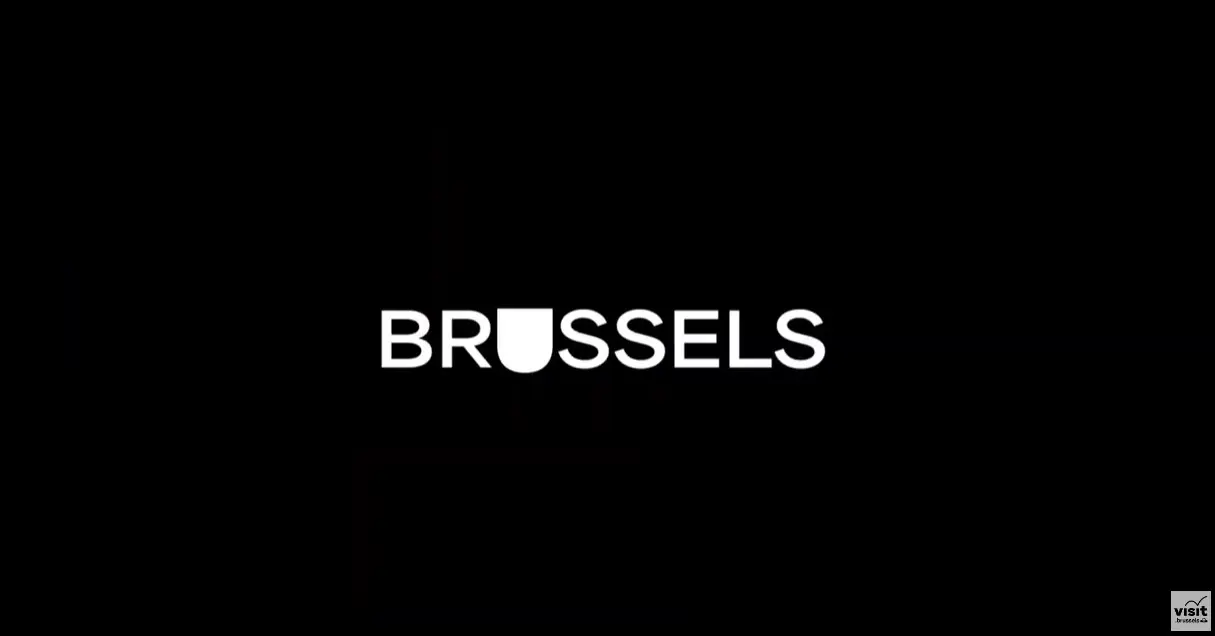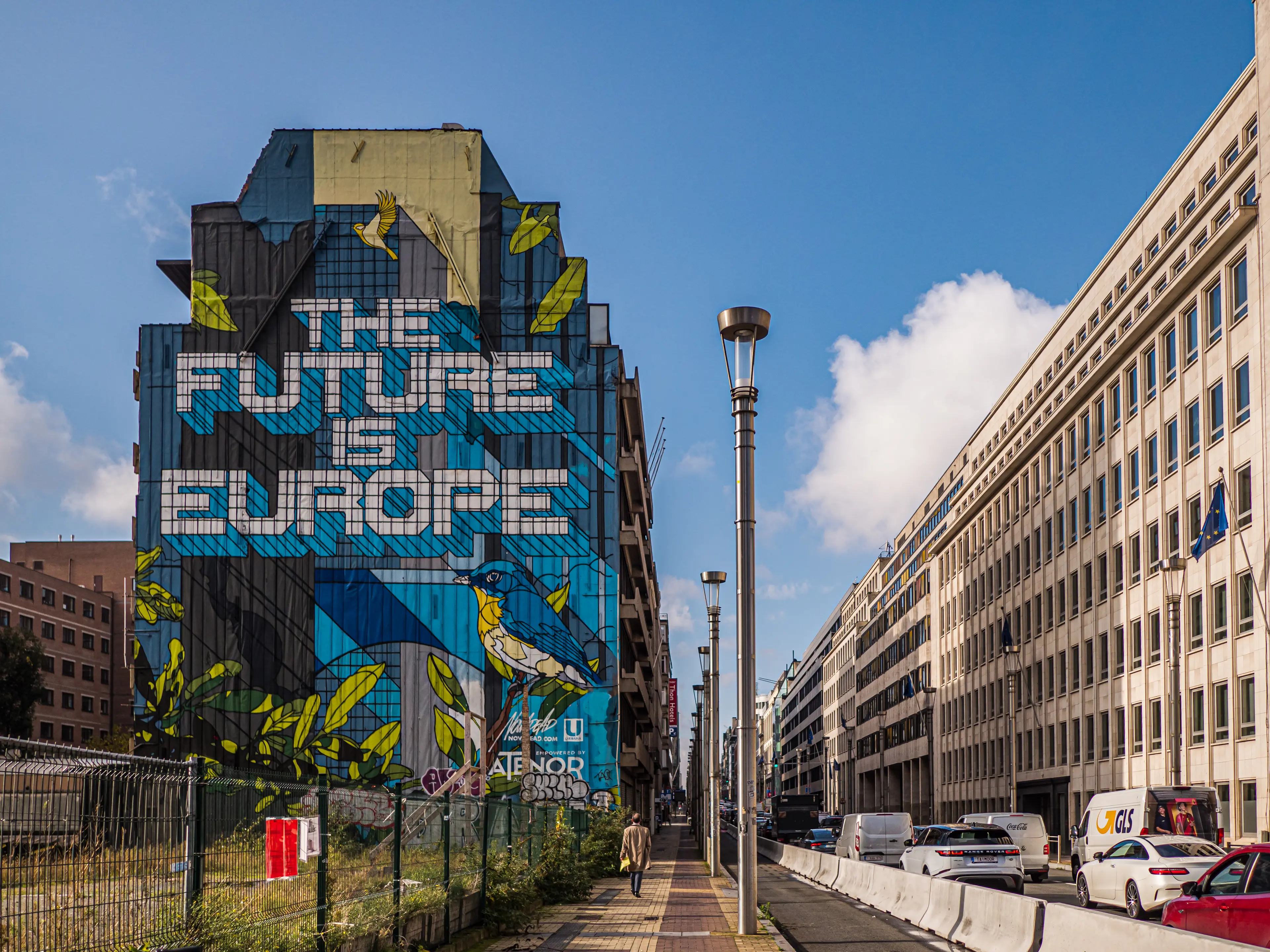Brussels and the Belgian presidency of the Council of the European Union
From January to June 2024, Belgium will hold the Presidency of the Council of the European Union (EU), a position it hasn’t held since 2010.
A multicultural region with many assets
The Brussels Region and its 19 municipalities lie at the heart of Belgium and a dynamic metropolis and are home to 1.2 million inhabitants. As the country’s capital, it is also the seat of the Union’s main institutions and has become the capital of 450 million Europeans.
Brussels encourages mixing, mingling and exchange so that new ideas can germinate and shape our future. The people of Brussels are optimists who embrace the chaos and beauty of their perfectly imperfect city.

Brussels is a cosmopolitan metropolis and a living canvas of cultural diversity, attracting minds from all over the world. While the region has two official languages, French and Dutch, the international nature of Brussels transcends this classification, as it is home to over 183 nationalities, and around 100 languages are spoken.
Home to numerous European institutions, Brussels plays a key role in the decisions that shape the destiny of the continent and beyond, as it also hosts the headquarters of leading international organisations including NATO, reinforcing its position as a strategic hub of global diplomacy.
It was still an industrial city in the 1950s, but Brussels’ economy has undergone a radical transformation to become more service-oriented. International institutions, as well as all the parallel activities generated by this ecosystem, account for a total of around 25% of economic activity and employment in the Region.
La présidence et le processus législatif de l’UE
To understand the role of a Opens in new windowpresidency, one must first grasp how the European institutions work. In a nutshell, the three main institutions, i.e., the Opens in new windowCouncil, along with the Opens in new windowEuropean Parliament and the Opens in new windowEuropean Commission, develop common policies for all 27 Member States. When the Commission proposes a legislative text (a directive, a regulation), the Council and the Parliament negotiate it separately and then attempt to reconcile their viewpoints to achieve an agreement that best respects everyone’s interests and allows its application throughout the EU. This lengthy process impacts all European citizens.
The Belgian presidency
Belgium will thus be tasked with presiding over all matters dealt with at the European level, from research to justice, industry to employment, and extending to finances and telecommunications. It will also negotiate numerous agreements with the European Parliament.
Given the country’s institutional organisation, the regions and communities are, of course, involved and tasked with presiding over councils within their competencies but always on behalf of Belgium.
It is in this particular context that the Brussels-Capital Region will preside over Opens in new windowthe Environment Council and urban policy.
The Brussels-Capital Region holds a unique position, after all. Situated at the heart of the European Union, it is a cosmopolitan metropolis on a human scale, a place embodying diversity where decisions of 27 Member States are made. It is often said, albeit inaccurately, that Brussels decides!
The Environment Council
As its name suggests, this Council is responsible for the European Union’s policy on the environment and climate. It focuses on environmental protection, the rational use of natural resources, and the preservation of human health. Additionally, it addresses international environmental issues, with a particular emphasis on climate change. During this legislative term, the Environment Council has been at the core of a particularly ambitious programme, as the EU has set the objective of achieving carbon neutrality by 2050.
Belgium, and by extension, the Brussels-Capital Region, intend to concentrate on topics close to their hearts, such as promoting the circular economy, adaptation and resilience, and a fair transition. This Council will be chaired by the Brussels Minister of the Environment, Alain Maron.
Urban policy
While not the subject of a specific Council, Member States convene at the intergovernmental level to address and debate common issues within the context of an informal Council or a high-level conference. The Brussels-Capital Region has opted for the latter format by bringing together the mayors of major European cities who will advocate for an ambitious urban policy after the 2024 elections.
The discussions will be chaired by Minister-President Rudi Vervoort, responsible for territorial development and urban renewal, and Secretary of State Ans Persoons, in charge of urban planning and heritage.
Various events to celebrate Europe, Belgium and Brussels
The Brussels-Capital Region will also be associated with events organised in collaboration with other federated entities, the federal government, and even the European Commission in areas such as social economy, animal welfare, research, and the Green Deal.
Finally, as the capital of Europe, Brussels will showcase itself with some flagship events. In collaboration with the European Parliament, artists Ann Veronica Janssens and Michel François will create an installation on the Solidarność esplanade, while the Opens in new windowBright light festival and Opens in new windowBrussels Pride will be dedicated to Europe. Exhibitions on Art Nouveau or housing will also challenge our perspective.
Calendar of events in the Brussels-Capital Region
- If you want to be heard, say it in Brussels
- Date : 1/09/2023 to 30/06/2024
- Location : Press Club Brussels Europe
- External linkPower
- Date : 12/10/2023 to 25/02/2024
- Location : CIVA
- External linkEuropean Union activities for 12-18 year-olds: “All European citizens! (FR)
- Date : 1/01/2024 to 5/01/2024
- Location : TYN – Talented Youth Network
- External linkExhibtion: “Stoclet 1911 Restitution”
- Date : 2/01/2024 to 14/04/2024
- Location : Musée Art & Histoire
- External linkThe Artist’s Parliament: L’Aire d’un Souffle
- Date : 10/01/2024 to 30/06/2024
- Location : Esplanade Solidarnosc
- External linkClosing event of the exhibtion “Throwaway, the history of a modern crisis”
- Date : 13/01/2024
- Location : Maison de l’Histoire Européenne
- External linkInformal Environment Council
- Date : 15/01/2024 to 16/01/2024
- Location : Palais d’Egmont
- External linkBelgian Renovation Week
- Date : 15/01/2024 to 18/01/2024
- Location : Maison de la Poste
- Interparlementary conference
- Date : 22/01/2024
- Location : Brussels parliament
- External linkA European urban policy fit for the future
- Date : 23/01/2024 to 24/01/2024
- Location : Palais d’Egmont
- External linkRhine-Meuse Forum 2024: The Green Deal, and now?
- Date : 25/01/2024
- Location : Grand Est-Europe
- External linkSymposium: Call to Care for Animal Welfare
- Date : 29/01/2024
- Location : Maison de la Poste
- Conference on citizen participation and the involvement of local authorities in the European project
- Date : 1/02/2024
- Location : Hôtel de Ville de Saint-Gilles
- External linkResearch to Reality – Digital Solutions to European Challenges
- Date : 5/02/2024 to 6/02/2024
- Location : The EGG Brussels
- External linkBridging the funding gap, Investors for innovation and the sustainability transition in Europe
- Date : 5/02/2024
- Location : BOZAR
- External linkTPE Summit: Global Gateway
- Date : 7/02/2024
- Location : Residence Palace
- External linkEuropavox Festival Brussels
- Date : 8/02/2024 to 9/02/2024
- Location : Botanique
- External linkThe social economy at the core of transitions
- Date : 12/02/2024 to 13/02/2024
- Location : Palais des Congrès, Liège
- External linkBright Festival: Brussels festival of lights
- Date : 15/02/2024 to 18/02/2024
- Location : Brussels centre and European Quarter
- External linkInauguration Usquare
- Date : 15/02/2024
- Location : Usquare
- External linkYoung people and Europe, the big debate
- Date : 26/02/2024
- Location : Brussels
- External linkEuropean Union activities for 12-18 year-olds: “All European citizens! (FR)
- Date : 26/02/2024 to 1/03/2024
- Location :TYN – Talented Youth Network
- External linkEuropean Union activities for 12-18 year-olds: “All European citizens! (FR)
- Date : 4/03/2024 to 8/03/2024
- Location : TYN – Talented Youth Network
- External linkFood 2030 Network Conference
- Date : 5/03/2024 to 8/03/2024
- Location : Brussels
- External linkBelgian soil week
- Date : 11/03/2024 to 15/03/2024
- Location : Auditoire BEL
- External linkEuropean Summit of Regions and Cities
- Date: 18/03/2024 to 19/03/2024
- Location: Mons
- External linkSeminar: Urban Archaelogy and the Cities of Tomorrow
- Date : 20/03/2024 to 23/03/2024
- Location : KBR / Hôtel de Ville
- External linkEFUS: European Forum on Urban Security
- Date : 20/03/2024 to 22/03/2024
- Location : The EGG Brussels
- External linkR&I Dimension in the European Green Deal
- Date : 21/03/2024
- Location : Tour & Taxis
- External linkCurrent state of extremism and populism: what consequences for the rise of racism in Europe?
- Date: 25/03/2024
- Location: Cité Miroir, Liège
- External linkIn miniature, what the EU does for its citizens
- Date : 1/04/2024 to 30/06/2024
- Location : Mini-Europe
- External linkConnecting Europe Days
- Date : 2/04/2024 – 5/04/2024
- Location : SQUARE
- External linkEU Dialogue : Driving positive change in the Meeting Industry
- Date : 16/04/2024 to 17/04/2024
- Location : Sparks
- External linkHealthy cities, healthy people: Pathways for clean air in the EU’s urban environments
- Date : 23/04/2024
- Location : nhow Brussels Bloom Hotel
- External linkLab focusing on the Urban Agenda for the EU
- Date : 24/04/2024
- Location : perspective.brussels
- Urban policy expert meeting (UDG)
- Date : 25/04/2024
- Location : La Bourse, Namur
- External linkTowards thriving territories: the potential of nature-based solutions
- Date : 29/04/2024
- Location : Auditoire BEL
- External linkEuropean Union Youth Orchestra, Bloch & Chooi
- Date : 9/05/2024
- Location : Palais des Beaux-Arts de Bruxelles
- External linkEurope Day – 10 years of Liveurope
- Date : 9/05/2024
- Location : Ancienne Belgique
- External linkEuropean Union Youth Orchestra & Jonathan Fournel
- Date : 10/05/2024
- Location : Palais des Beaux-Arts de Charleroi
- External linkA Moment of Choice Towards a European Pact for the Future – European Environment Bureau Annual Conference
- Date : 13/05/2024 to 14/05/2024
- Location : Auditoire BEL
- External linkEurope Connexion
- Date : 14/05/2024 to 25/05/2024
- Location : Théâtre des Martyrs
- External linkExhibition: “New Ways of Living”
- Date : 16/05/2024 to 29/09/2024
- Location : Halles Saint-Géry
- External linkBrussels Pride: Safe Everyday Everywhere
- Date : 18/05/2024
- Location : Brussels
- External link3rd Forum on the Mission on Adaptation to Climate Change
- Date : 23/05/2024
- Location : Auditoire BEL
- External linkSeminar with local urban development agencies and administrations in European cities
- Date : 29/05/2024 to 30/05/2024
- Location : COOP
- External linkINDTech 2024
- Date : 3/06/2024 to 5/06/2024
- Location : Namur
- PFAS: study, treatment and management of health risks
- Date : 20/06/2024 au 21/06/2024
- Location : Auditoire BEL
- Meeting of the Directors General on Urban Matters » (DGUM)
- Date : 26/06/2024
- Location : SQUARE
Want to know more :
The representatives of the Brussels-Capital Region:
- Opens in new windowBruxelles Environnement
- Opens in new windowperspective.brussels
- Opens in new windowurban.brussels
- Opens in new windowvisit.brussels
- Opens in new windowCommissioner for Europe and International Organisations
Website of the Belgian presidency :

